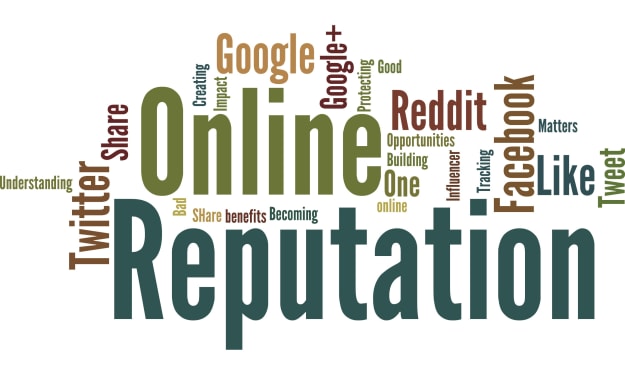Brand Storytelling: Using Narrative to Shape Perception and Reputation
Online Reputation management

In today's digital age, where information is readily accessible and opinions can spread rapidly across online platforms, managing a brand's reputation has become more crucial than ever. Amidst the noise of social media and the constant influx of user-generated content, brands must proactively shape their narrative to influence how they are perceived by their audience. This is where the art of brand storytelling comes into play, leveraging the power of narrative to craft a compelling and authentic identity that resonates with consumers. In this blog, we delve into the significance of brand storytelling in online reputation management, exploring how strategic narrative-building can shape perception, foster trust, and enhance brand reputation.
Crafting an Authentic Brand Narrative
At the heart of effective brand storytelling lies authenticity—the ability to convey a genuine and relatable narrative that reflects the core values, mission, and personality of the brand. By crafting an authentic brand narrative, organizations can establish a strong emotional connection with their audience, fostering trust and loyalty in the process. Authenticity is about more than just marketing slogans or polished visuals; it's about sharing the human stories behind the brand, acknowledging both successes and challenges with honesty and transparency.
An authentic brand narrative serves as a guiding beacon for all communication efforts, ensuring consistency and coherence across various touchpoints. Whether through social media posts, blog articles, or video content, every piece of brand communication should reinforce the overarching narrative, reinforcing the brand's identity and values in the minds of consumers. By staying true to its authentic story, a brand can build credibility and authenticity, earning the trust and loyalty of its audience in an increasingly competitive marketplace.
Engaging and Empathetic Storytelling
In the digital realm, where attention spans are fleeting and content consumption is at an all-time high, brands must employ engaging and empathetic storytelling techniques to capture and retain audience interest. Effective brand storytelling goes beyond product features or promotional messages; it taps into universal human experiences and emotions, resonating with audiences on a deeper level. By crafting narratives that evoke empathy, inspiration, or nostalgia, brands can forge emotional connections with their audience, leaving a lasting impression that transcends mere transactions.
Engaging storytelling invites audience participation and interaction, transforming passive consumers into active participants in the brand's narrative. Whether through user-generated content campaigns, interactive storytelling experiences, or immersive brand activations, brands can empower their audience to co-create and share their own stories, fostering a sense of community and belonging. By embracing a collaborative approach to storytelling, brands can amplify their reach and impact, leveraging the collective power of their audience to shape perception and drive brand advocacy.
Managing Brand Perception Through Narrative
In the digital landscape, where news travels fast and public opinion can sway in an instant, brands must be vigilant in monitoring and managing their online reputation. Strategic brand storytelling plays a crucial role in shaping perception and managing crises effectively, allowing brands to proactively address negative sentiment and steer the narrative in a positive direction. By preemptively crafting narratives that highlight the brand's values, achievements, and contributions, organizations can build a reservoir of goodwill that serves as a buffer against reputational threats.
In times of crisis or controversy, transparent and empathetic storytelling can help brands navigate turbulent waters and rebuild trust with stakeholders. By acknowledging mistakes, taking responsibility, and outlining concrete steps for improvement, brands can demonstrate accountability and authenticity, mitigating the impact of negative publicity. Through strategic narrative management, brands can not only weather storms but emerge stronger and more resilient, reaffirming their commitment to integrity and ethical conduct in the eyes of their audience.
Leveraging Storytelling Across Digital Channels
In the digital era, where consumers are constantly bombarded with content from various sources, brands must leverage storytelling across multiple digital channels to cut through the noise and capture audience attention. From social media platforms to email marketing campaigns and branded content hubs, every digital touchpoint offers an opportunity for brands to share their narrative and engage with their audience. By tailoring storytelling strategies to suit the unique characteristics and preferences of each platform, brands can maximize reach and resonance, driving meaningful interactions and fostering brand advocacy.
Digital storytelling allows brands to harness the power of multimedia formats to create immersive and impactful brand experiences. Whether through visually stunning videos, interactive infographics, or engaging podcasts, brands can leverage a diverse array of content formats to convey their narrative in compelling ways. By embracing creativity and innovation in digital storytelling, brands can captivate their audience's imagination and leave a lasting impression that resonates long after the initial interaction.
Building Brand Loyalty Through Emotional Connection
At the heart of effective brand storytelling lies the ability to forge emotional connections with consumers, transforming them from passive customers into loyal brand advocates. By tapping into universal human emotions such as joy, nostalgia, or empathy, brands can create meaningful experiences that resonate with their audience on a personal level. Whether through storytelling campaigns that celebrate shared values or brand initiatives that support social causes, brands can foster a sense of belonging and community among their audience, deepening the emotional bond with the brand.
Brands can leverage storytelling to create memorable brand experiences that transcend traditional marketing tactics and leave a lasting impression on consumers. By integrating storytelling into every aspect of the customer journey, from initial brand discovery to post-purchase engagement, brands can nurture long-term relationships built on trust, authenticity, and mutual respect. By consistently delivering value and meaning through compelling narratives, brands can inspire loyalty and advocacy, turning satisfied customers into passionate brand ambassadors who advocate for the brand and champion its values.
Measuring Impact and Iterating Strategies
In the realm of brand storytelling, measuring the impact of narrative-driven initiatives is essential for optimizing performance and refining storytelling strategies over time. Brands can leverage a variety of metrics, such as engagement rates, sentiment analysis, and brand perception surveys, to gauge the effectiveness of their storytelling efforts and identify areas for improvement. By analyzing data and feedback from their audience, brands can gain valuable insights into what resonates most with their target demographic and tailor their storytelling strategies accordingly.
Brands can use storytelling as a tool for continuous innovation and adaptation, experimenting with new formats, themes, and narratives to stay relevant and impactful in an ever-evolving digital landscape. By embracing a culture of experimentation and iteration, brands can push the boundaries of storytelling creativity and discover new opportunities for engagement and connection with their audience. Moreover, by soliciting feedback and input from their audience, brands can co-create narratives that reflect the evolving needs and preferences of their community, ensuring that their storytelling efforts remain authentic, relevant, and impactful over time.
Brand storytelling is a powerful tool for shaping perception, fostering emotional connection, and enhancing reputation in the digital age. By crafting authentic and engaging narratives that resonate with their audience, brands can differentiate themselves from competitors, build trust and loyalty, and create meaningful experiences that leave a lasting impression. Whether through strategic narrative management, digital storytelling initiatives, or brand-building campaigns, storytelling offers endless opportunities for brands to connect with their audience on a deeper level and build lasting relationships built on mutual understanding and shared values. As brands continue to navigate the complexities of the digital landscape, storytelling will remain a cornerstone of effective reputation management, empowering organizations to shape perception, drive engagement, and build a positive and enduring brand legacy.
About the Creator
Reputation Guards
Reputation Guards is a leading reputation management agency based in Chicago, Illinois, that offers top-notch services to businesses looking to optimize their online presence.
Enjoyed the story? Support the Creator.
Subscribe for free to receive all their stories in your feed. You could also pledge your support or give them a one-off tip, letting them know you appreciate their work.






Comments
There are no comments for this story
Be the first to respond and start the conversation.